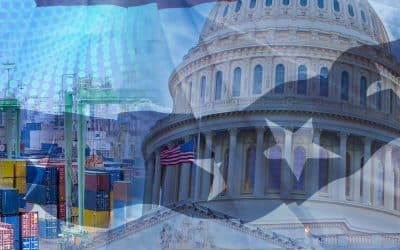Tense calm in the markets after sanctions against Russia

Redacción Mapfre
For yet another week, investors are keeping a watchful eye on the geopolitical tensions in Ukraine. After Russia's recognition of the Donetsk and Luhansk regions, and amid escalating tensions in the region, the United States and the European Union have already announced sanctions, albeit “moderate” ones. Analysts are facing a new scenario every day and need to anticipate the situations that could arise and the potential repercussions for the markets: whether Putin goes any further, or settles for ending the war before it begins.
For now, and although it's been one thing after another since the start of the year, one surprise is that the vast majority of European indexes “seem to have reacted positively to the latest news about the conflict,” says Ismael García Puente, fund manager and head of investments at MGP. However, the focus is on equities, which have remained in the red for weeks now. This situation, according to Alberto Matellán, chief economist at MAPFRE Inversión, is due to “uncertainty”: “Right now it’s the markets’ worst enemy, because we don’t know how this scenario is going to play out. It’s the most important factor, because it has the potential to do the most damage, but it’s also the one that reverses the fastest.”
The impact therefore appears uncertain. The markets are already reacting to the latest measures, such as Germany’s decision to halt certification of the Nord Stream 2 gas pipeline. So how might the geopolitical crisis affect the European economy? According to Ismael, "the impact is limited right now." However, Alberto Matellán clarifies that Germany would be the most harmed among Eurozone countries, since "it’s the one with the strongest ties to the region, including economic, energy and diplomatic ties.” The fact that its business sector depends, to a certain degree, on the East (exports represent around 2%) could open up a can of worms, even leading to a technical recession, the Bundesbank has pointed out. But the economist disagrees with this assessment, since “the data doesn't coincide.” "The numbers are better than expected, and they are allowing for more speculative factors," he adds.
Experts agree that this event could further increase the pressure on prices. “One of the few things that seem clear is that this situation would put upward pressure on inflation, supported by commodities and gas and oil flows,” says the chief economist at MAPFRE Inversión, who also wonders whether this would be hard to control by moving interest rates. What is evident is that any rise in prices would be studied by the ECB. And “with high inflation and low interest rates, its tone may be harsher than it has been in the past,” Ismael adds. If this diplomatic crisis comes to a deadlock, “we would see structurally higher inflation,” so nobody can say that price levels have peaked.
In any case, the situation in Ukraine is far from over. And not even the experts dare to guess what could happen in the coming days. Even so, some claim that geopolitical events can present buying opportunities. But beyond the noise, Ismael reminds us that “investors can't read Putin's mind”: “The important thing is to stay calm and have portfolios that are well-defined, adapted to our risk and diversified.” So how should we distribute our investments? Alberto Matellán believes investors should have “a little of everything” for protection against all the potential threats: “Traditionally U.S. or German treasury bonds have been used as defense against military conflicts and geopolitical tensions. But this solution is too simplistic, because in the markets we are exposed to various fronts, and each one has its own particular defense,” he says.



